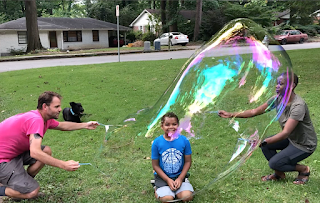Scientists have decoded visual images from a dog's brain, offering a first look at how the canine mind reconstructs what it sees.
The Journal of Visualized Research published the research done at Emory University. The results suggest that dogs are more attuned to actions in their environment rather than who or what is doing the action.
"We showed that we can monitor the activity in a dog's brain and, to at least a limited degree, reconstruct what it is looking at," says Gregory Berns, Emory professor of psychology and corresponding author of the paper. "The fact that we are able to do that is remarkable."
Related:
Dogs process numerical quantities in similar brain regions as humans



